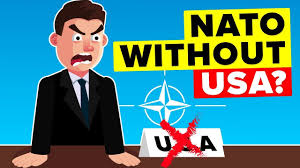
The European Union is preparing for what was unthinkable—American withdrawal from NATO
By Tom Arms
The European Union is preparing for what was unthinkable—American withdrawal from NATO.
They have been spurred into action not just by Donald Trump’s offer to Vladimir Putin to “do what you want” with any NATO member who fails to devote two percent of their GDP to defence.
No, Europeans detect 1—a growing undercurrent of isolationism; 2- an American perception that the biggest threat to their national interests lie in Asia; 3- that Americans feel that Europeans have taken advantage of American military largesse for too long and 4- Even the greatest military power in the history of the world can’t fight a two-front war in Asia and Europe.
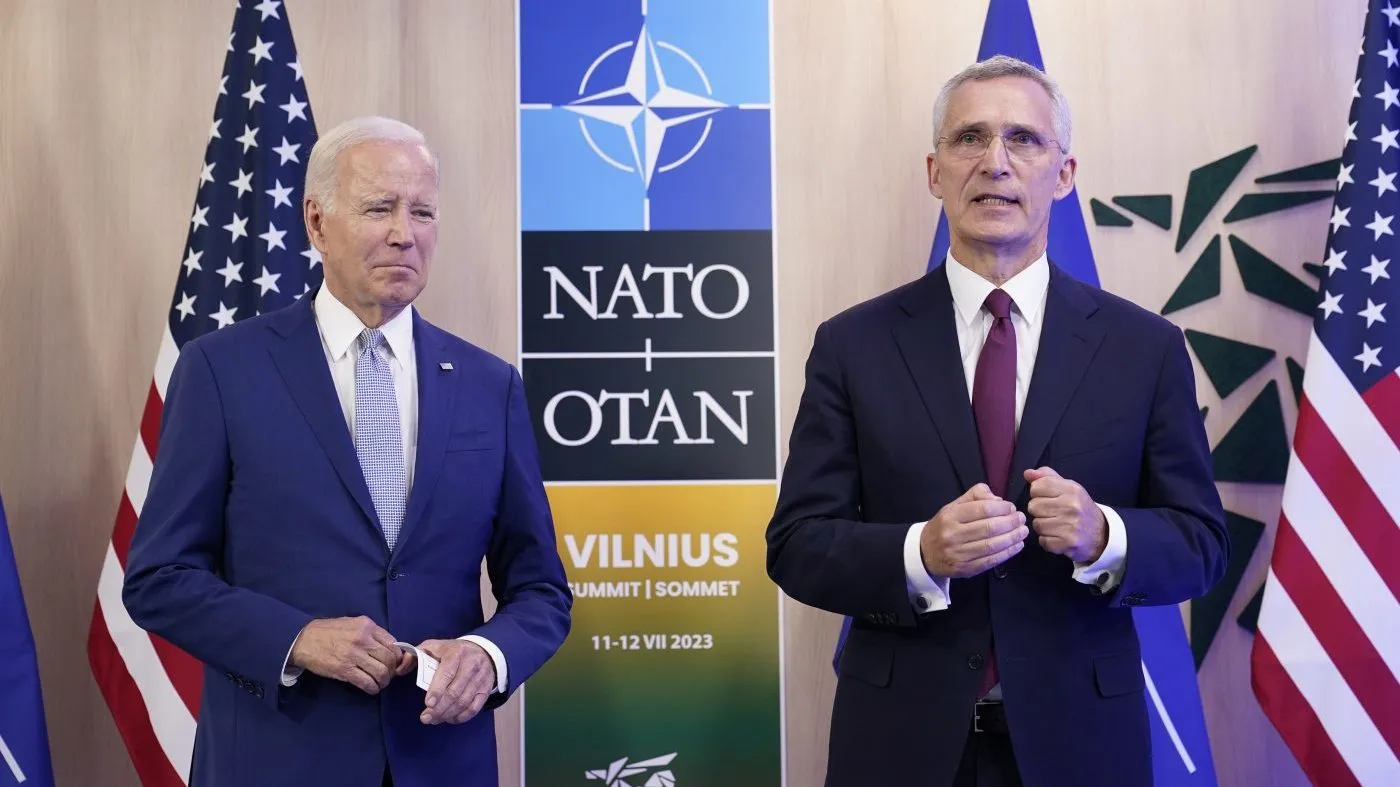
Read: Trump will pull US out of NATO if he wins election, ex-adviser warns
None of the above concerns take into account the many benefits America derives from membership of NATO. And the fact is, that Americans, especially MAGA Republicans, are in no mood to listen.
That is why this week the EU launched its European Defense Industry Strategy. At the moment the US supplies about half of the armaments required by its European allies. If Europe is to stand alone then it needs an armaments industry to supplies its troops.
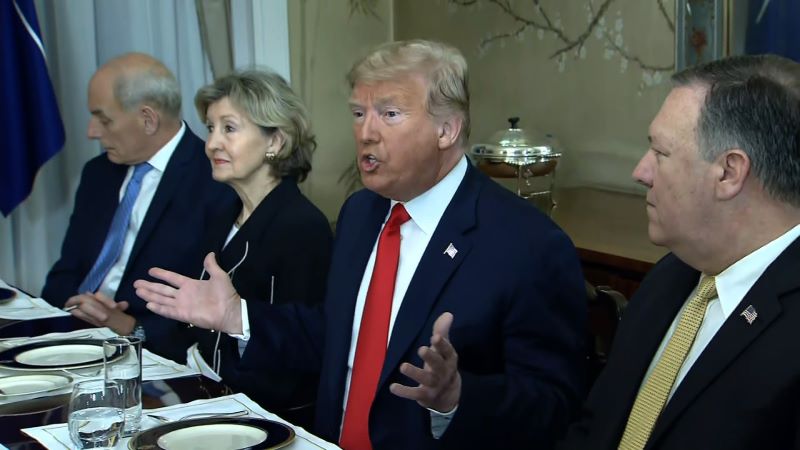
Read: Trump didn’t quit NATO, but a potential second term alarms allies
Launching the EDI Strategy, Commission President Ursula von der Leyen called on EU members to spend at least half of their defense procurement budgets on European-produced weaponry.
To encourage national defense ministries to “buy European,” the commission is dangling a few carrots. For a start, they are offering to exempt ministries from paying VAT on EU-made guns and bullets.
They are also establishing a “High Level Defense Industry Group” to help coordinate procurement programs and an organization to sell the increased defense production to third countries.
Read: Congress approves bill barring any president from unilaterally withdrawing from NATO
And finally, to further encourage the growth of an EU defense industry, the commission plans to partly finance this growth in advance by pre-sales to non-EU armies, air forces and navies.
But there are problems with this plan. For a start most defence planners agree that if America withdrew from NATO that the Europeans—and possibly Canadians as well– best course of action would be to simply move into the NATO positions formerly held by the Americans.
This is because of the past 75 years NATO has developed elaborate and successful command and control systems and lines of communication. Why re-invent the wheel. And, it is all well and good to have more weapons, but Europe also needs tried and test systems to deploy them effectively.
The next problem is that not all members of the EU are members of NATO. Austria, Cyprus, Ireland, and Malta are EU members but not in NATO. Iceland, Norway, Britain, Canada, Albania, Montenegro, North Macedonia and Turkey are members of the NATO alliance but not in the EU.
Ukraine, is included in the planned European Defense Industry Strategy but is neither a member of the EU or NATO.
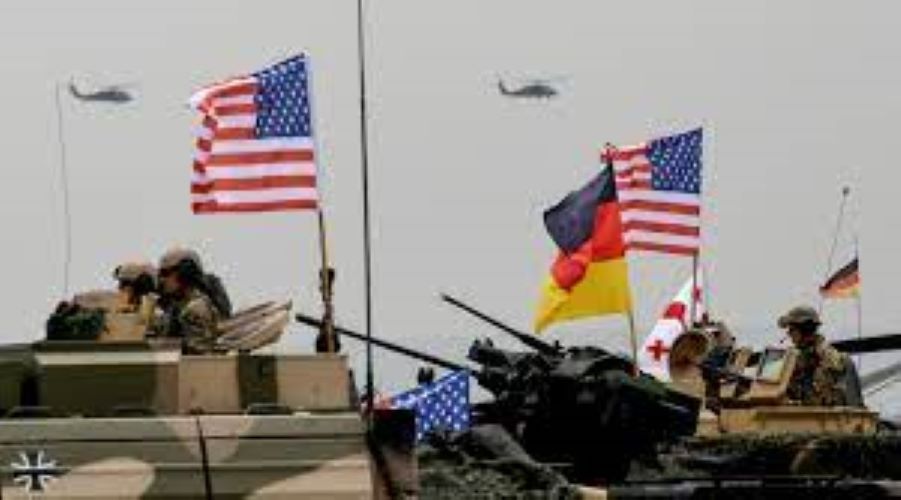
Read: What if America leaves NATO?
Britain is, of course, one of the most important components in any European-only defense system who is not a member of the EU. The Royal Navy would almost certainly have to assume most of the responsibility for guarding the North Sea, Greenland-Iceland-UK Gap, the English Channel and the approaches to the Channel. Britain also has the second largest defense budget within NATO.
Most important of all, if Europe is to have any kind of nuclear umbrella it needs Britain. The UK has an estimated 250 nuclear warheads, most of them situated at the tips of Trident II missiles which can be launched from its four Vanguard-class submarines.
The French have another 250. And since 2010 Britain and France have been cooperating in the development and production of nuclear warheads. Of course, 500 warheads is less than a tenth of the size of the Russian arsenal. But it is conceivable that Europe can develop a minimum deterrence policy. After all, at the height of the Sino-Soviet split, the Chinese held off Moscow with only 300 warheads.
What is inconceivable, is a European defense system without Britain.
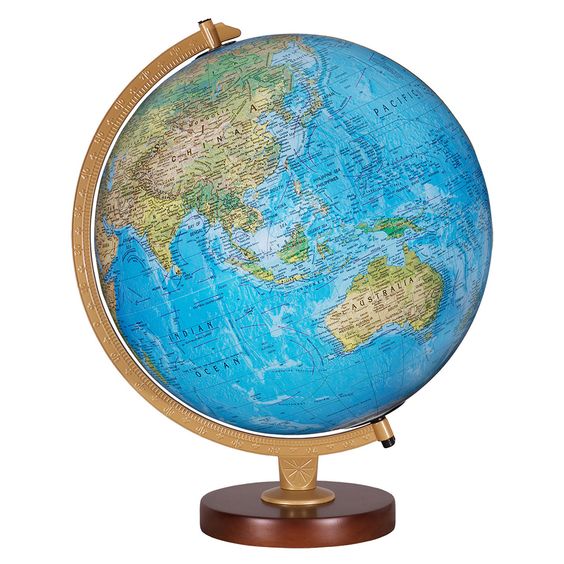 World Review
World Review
Keep your eye on Israeli politician Benny Gantz. He is currently the bookies’ favorite to be Israel’s next Prime Minister.
More importantly, he has hinted at a willingness to discuss the two-state solution.
This has put him in direct conflict with Prime Minister Benjamin Netanyahu and the far-right coalition members of his government. They are totally opposed to the two-state solution which is being pushed by the US, Europe, the Arab world and virtually everyone except Netanyahu and Co.
Gantz’s political flexibility earned him an invitation to visit Washington where this week he met with Vice President Kamala Harris and Secretary of State Antony Blinken.
The visit was not cleared with Netanyahu who ordered Michael Herzog, Israel’s ambassador in Washington, to do everything possible to sabotage the Gantz visit.
And when the minister-without-portfolio returned he was told by Netanyahu that “Israel has only one prime minister.” That prime minister, it must be said, has yet to receive an invitation to visit the Biden White House.
Gantz is leader of the National Unity Party. Like so many Israeli politicians he came through the ranks of the military, eventually becoming army chief of staff in 2012. Then in 2018 he decided to turn his hand to politics and very quickly emerged as the main opposition figure to Netanyahu.
After the October 7 attack by Hamas, Netanyahu invited Gantz to join a national unity war cabinet, along with three other members of his party
Gantz accepted and is in full agreement with Netanyahu on the need for total victory over Hamas. But the two men part company over what happens next.
Netanyahu is adamant in his refusal to discuss a two-state solution or anything even remotely resembling a two=state solution.
But in 2020, Gantz told the Munich Security Conference: “Eventually we will find ourselves a two-entity solution in which we respect Palestinian sovereignty and governance but we will be respected for our security needs.”
Despite repeated questioning by journalists and others, Gantz refused to define “entity.” But position was clear enough to prompt far-right Finance Minister Bezalel Smotrich to describe Benny Gantz as the “weak link” in Israel’s war cabinet. This week Smotrich stood up in the Knesset and demanded that Gantz declare his opposition to the two-state solution. Gantz’s reply was a deafening silence.
Meanwhile the minister-without-portfolio continues to rise in the opinion polls and Netanyahu continues to fall. According to a poll this week by Israel’s Channel 10, voters believe that Netanyahu is prolonging the war for his own political ends. According to the poll, voters think that the prime minister knows that when the war ends he will unceremoniously be voted out of office and – without immunity from prosecution–face a series of long-standing corruption charges.
***
The Sudanese Civil War is a forgotten war. It shouldn’t be.
Not only is Sudan a major humanitarian crisis with upwards of ten million displaced people, but it is turning into a geopolitical battleground pulling in many of the world’s major powers.
At its core, the war is a power struggle between two men: the leader of the Sudanese army General Abdul Fattah al-Burhan and the head of Sudan’s feared paramilitary forces General Mohamed Hamdan Dagalo who goes by the nom de guerre of Hemedti.
Hemedti has one big advantage—he controls the country’s gold producing regions. Sudan is the third largest gold producer in Africa after Ghana and South Africa. It produces about $1.3 billion worth of gold a year.
Usually this money goes straight into government coffers. But at the moment it is going to pay for Putin’s war machine via the Wagner Group who is supplying weapons and men in return for illegal gold mining rights.
This has drawn Ukraine into the Sudanese civil war. They recently dispatched war-hardened commandos to the aid of General Burhan because they want to stop the flow of gold to Russia.
The United Arab Emirates have also become involved because they have a stake as middle men in the sale of the gold. They back Hemedti.
The US and Britain are being drawn in because they are concerned about Putin using the Wagner Group to establish a base on the Red Sea. Sudan borders both the Red Sea, the Sahel region and the Horn of Africa.
It also has the Nile running through it. This makes it of interest to Egypt, which is also supporting General Burhan. Ethiopia, who is in the middle of a dispute with Egypt over the Nile water rights, supports Hemedti.
Possibly because it doesn’t want be left out, Saudi Arabia is also involved. But it is hedging its bets by talking with both sides. In the meantime the ten million remain homeless.
***
Economists reckon that the Chinese economy needs to grow by eight percent a year. Less than that and the Chinese Communist Party will have difficulty in providing the social services needed to stave off political unrest.
Last year it grew at five percent. Next year, according to a speech this week by Premier Li Qiang to the rubber stamp National People’s Congress, the economy will grow another five percent.
In fact, most Western economists doubt even the five percent figure. But they can’t provide an accurate statistic because of lack of transparency on the part of the Chinese Communist Party.
There are lots of reasons for the Chinese slowdown. The sanctions and “de-risking” policies of the West are having an effect, especially as the Chinese economy requires large injections of foreign capital. The global cost-of-living crisis caused primarily by the Ukraine War, is also impacting on Chinese exports. Western households just don’t have the money to buy Chinese goods.
Then there is the property market. Seventy percent of Chinese household wealth is tied up in real estate and the real estate sector is crashing.
Related to property is government investment in infrastructure which has been paid for by borrowings. The Chinese government borrowings have increased six-fold since 2000 to 335 percent of the Chinese GDP.
The easy answer to the problems of the Chinese economy is to mobilize their 1.41 billion citizens to spend more. The CCP was hoping for just that when the covid emergency stopped. It didn’t happen. And the reason it didn’t happen is because the Chinese people are saving for what they fear will be a very rainy day.
***
Excitement in the South China Sea this week. The Philippines Coast Guard and their Chinese equivalent clashed with a couple of rammings and damage to a Filipino vessel by a Chinese water cannon.
The government of Bongbong Marcos is currently in the frontline opposing Chinese sovereignty claims over the South China Sea. His hand is strengthened by the recent return of US troops to the Philippines and the country’s long-standing Mutual Defense Treaty with America.
The Philippines is only one of several countries that dispute Beijing’s claim to all of the South China Sea. But it is the only one that has staked out a physical presence.
That presence is a rusty rat-infested World War Two ship the Sierra Madre. The Philippines ran the ship aground on the Second Thomas Shoal in the Spratly Islands. The government then based a small rotating detachment of marines on the ship.
This week’s clash came about because a small flotilla of Philippines Coast Guard vessels was attempting to re-supply the marines. They were blocked by up to 25 Chinese ships. One Filipino ship was rammed and another had its windows broken by a water cannon. CNN cameras caught the action.
One of the Philippines Coast Guard vessels managed to break through the blockade to bring food and fresh water to the Sierra Madre. It will be another 90 days before another supply attempt is made.
The Philippines are particularly concerned about the effect that the Chinese claim has on their fishing industry which employs 1.6 million people. The South China Sea is one of the world’s richest fishing grounds. Its 3,365 known species are estimated to represent 12 percent of the world’s fish.
The 1.3 million square miles of the South China is also the world’s busiest shipping lane. $3.4 trillion worth of trade passes through it every year. And underneath the seabed is reckoned to be 11 billion barrels of oil and 190 trillion cubic feet of natural gas.
The Philippines, Brunei, Vietnam, Taiwan and Malaysia all claim economic rights to a portion of the South China Sea. Each country’s slice is based on the UN-recognized 200-mile limit or median line. China claims it all. Its claim has been rejected by the International Court of Justice, but has the support of 66 other countries.
Read: Observations of an Expat: Space Wars
____________________
 Tom Arms is foreign editor of Liberal Democrat Voice and the author of “The Encyclopedia of the Cold War.” He is also co-host of the world affairs podcast “TransAtlantic Riff” which can be heard by clicking here.
Tom Arms is foreign editor of Liberal Democrat Voice and the author of “The Encyclopedia of the Cold War.” He is also co-host of the world affairs podcast “TransAtlantic Riff” which can be heard by clicking here.
https://open.spotify.com/show/3ntjretAKNLZNFpA5ZEGDG?utm_source=substack&utm_medium=email